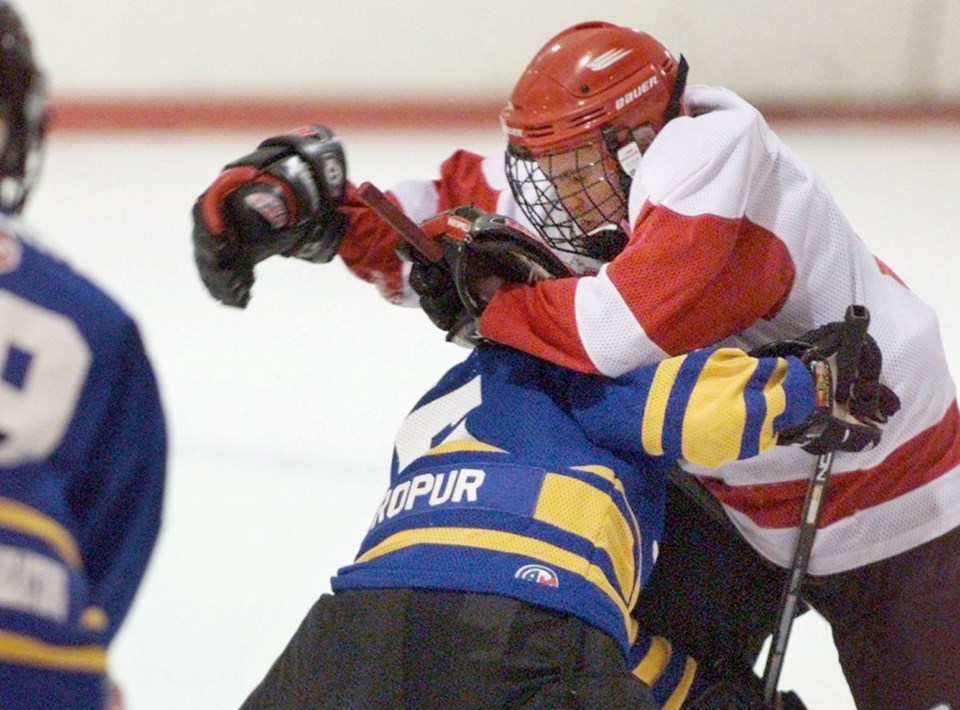Children playing minor hockey will face a lower risk of injury as a result of Hockey Canada’s decision to ban bodychecking at the peewee level, Harold Bloomenthal, president of Juan de Fuca Minor Hockey, said Saturday.
Hockey Canada representatives from across the country voted to ban bodychecking in the 11- to 12-year-old age group. Only Saskatchewan voted against the change.
Hockey Alberta and Hockey Nova Scotia eliminated bodychecking this month, following the lead of Quebec.
Research on concussions led to the decision.
“Juan de Fuca Minor Hockey is very concerned about the safety and well-being of our players. We defer to our governing bodies in terms of making this decision as they have all the right information available to them,” Bloomenthal said.
“We will continue to mentor our coaches and players in terms of on-ice safety, and by teaching the skills to give or receive a bodycheck.”
Only older players on bantam and midget rep teams — those most likely to continue to higher levels — will have full contact, Bloomenthal said.
Changes will be implemented for the 2013-14 season. A national bodychecking standard for coaching is to be in place for the 2014-15 season.
Research in Alberta last year showed peewee players there were three times more likely to be injured than in Quebec, where bodychecking is not allowed until the bantam level, when players are 13 and 14 years old.
Hockey Alberta’s study indicated banning bodychecking at peewee could prevent 400 concussions a year in the province.
B.C. Hockey did not officially comment on Saturday’s policy change, but Bloomenthal said it would transform the game.
“For most players that play for fun and have no aspirations to move on past minor hockey, this does minimize risk and makes sense,” he said.
“As to our peewee rep players, they will have to learn the game without bodychecking,” he said. “We will have to pick up that [missing] piece as efficiently as we can when they reach bantam age.”
Hockey Alberta board chairman Rob Virgil said the safety of players was key in the decision.
“There is overwhelming evidence that bodychecking is the single most consistent risk factor for injuries and concussions in youth ice hockey,” he said.
Kelly McClintock, general manager of the Saskatchewan Hockey Association, argued that bodychecking should be taught to children as young as eight and nine.
“Our membership has always been very strongly in favour of having bodychecking as early as possible,” McClintock told media.
Paul Carson, vice-president of hockey development for Hockey Canada, said that while some people would be reluctant to make the change because of their traditional beliefs, “they also understood that safety and the area of skill development were critical issues to consider.”
— With The Canadian Press



